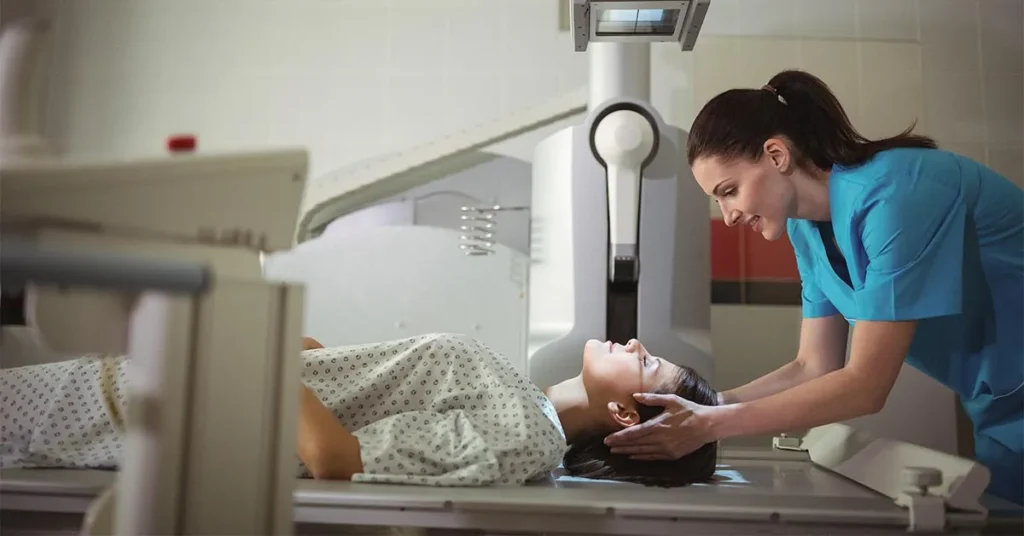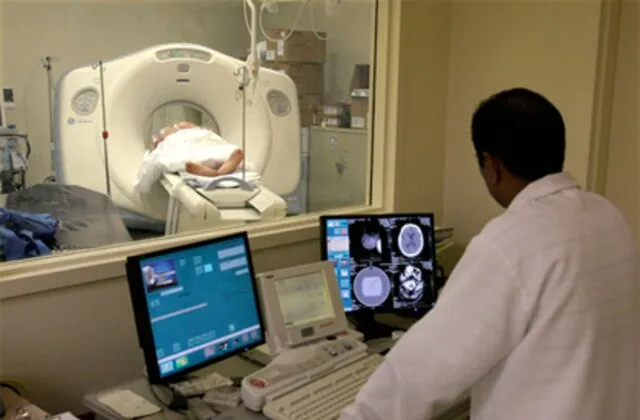Radiology tech salaries are a key consideration for anyone interested in a career in diagnostic imaging. Radiologic technologists play an essential role in the healthcare system, operating sophisticated equipment such as X-ray machines, MRIs, and CT scanners to help diagnose medical conditions. But how much do radiologic technologists earn, and what factors affect their salaries? This guide will dive into radiology tech salaries, the factors that influence them, career growth opportunities, and tips on how to maximize your earning potential in this exciting field.
What Are Radiology Tech Salaries?
Radiology tech salaries refer to the earnings of healthcare professionals trained to operate medical imaging equipment. As of 2024, the average salary for radiologic technologists in the U.S. is around $64,000 per year. However, this can vary significantly depending on several factors, including location, experience, education, and employer.
Radiologic technologists are highly skilled professionals responsible for ensuring high-quality imaging while prioritizing patient care and safety. As technology advances and healthcare demand grows, radiology tech salaries are expected to rise, offering a promising career path for those interested in medical imaging.
Read Also: New Balance 9060: A Comprehensive Guide to Style and Comfort
Factors Influencing Radiology Tech Salaries
Several key factors determine how much radiology technologists earn. These factors can lead to variations in salaries across different regions, employers, and individual technologists. Below are some of the main factors that influence radiology tech salaries:
1. Geographic Location
One of the most significant factors affecting radiology tech salaries is geographic location. Radiologic technologists working in states with a higher cost of living typically earn higher wages. For example, in states like California, New York, and Massachusetts, radiology tech salaries can be significantly higher than the national average.
- California: $79,000 per year (average)
- New York: $72,000 per year (average)
- Texas: $61,000 per year (average)
- Florida: $58,000 per year (average)
- Ohio: $60,000 per year (average)
On the other hand, states with lower living costs may offer lower salaries, though this is often balanced by the lower expenses. Radiologic technologists working in rural areas may also earn less than their counterparts in urban hospitals or medical centers, where demand is higher, and salaries reflect this need.

2. Experience and Career Progression
As with most professions, experience plays a crucial role in determining radiology tech salaries. Entry-level radiologic technologists typically earn less than those with several years of experience. However, as technologists gain experience and skills, their salary potential increases.
- Entry-level technologists (0-2 years): $48,000 – $55,000 per year
- Mid-career technologists (3-5 years): $60,000 – $70,000 per year
- Experienced technologists (6-10 years): $70,000 – $80,000 per year
- Veteran technologists (10+ years): $80,000+ per year
With more experience, radiologic technologists may take on additional responsibilities, such as managing imaging departments or training new staff, which can lead to higher salaries. In some cases, technologists with extensive experience may even move into supervisory or administrative roles.
3. Education and Certifications
Radiology tech salaries are also influenced by the level of education and certifications held by the technologist. While an associate degree is typically the minimum requirement to become a radiologic technologist, additional education or specialized certifications can increase earning potential.
Technologists who pursue certifications in specialized imaging techniques, such as MRI, CT scanning, or mammography, often earn higher salaries. These certifications demonstrate a higher level of expertise and allow technologists to take on more advanced roles.
- MRI Technologist: $75,000 per year (average)
- CT Technologist: $72,000 per year (average)
- Mammography Technologist: $70,000 per year (average)
Additionally, technologists with a bachelor’s degree in radiologic sciences or a related field may have access to higher-paying roles in management or education, further boosting their radiology tech salaries.
4. Type of Employer
The type of employer can significantly affect radiology tech salaries. Radiologic technologists employed in hospitals generally earn more than those working in outpatient care centers, physician offices, or diagnostic laboratories.
- Hospitals: Hospitals typically offer the highest salaries for radiologic technologists, especially in larger, metropolitan hospitals where demand for medical imaging is high.
- Outpatient Care Centers: While outpatient care centers may offer slightly lower salaries, they often provide more predictable work schedules and may appeal to technologists looking for better work-life balance.
- Physician Offices: Radiologic technologists working in physician offices usually earn the lowest salaries compared to other settings. However, these positions may offer less stress and more flexible hours.
- Diagnostic Labs: Salaries in diagnostic labs can vary depending on the size and specialization of the lab. Larger labs with specialized imaging services may offer higher salaries than smaller labs with more basic imaging needs.
5. Specialization in the Field
Radiology tech salaries can also be influenced by specialization within the field. Technologists who focus on advanced or highly specialized imaging techniques tend to earn more. For instance, interventional radiology, nuclear medicine, and sonography are high-demand specialties that come with higher salaries.
- Interventional Radiology Technologist: $85,000 per year (average)
- Nuclear Medicine Technologist: $80,000 per year (average)
- Sonography Technologist: $78,000 per year (average)
Technologists with expertise in these specialized areas are often in high demand and can negotiate higher wages due to their unique skills and knowledge.
How to Increase Your Radiology Tech Salary
If you’re looking to boost your radiology tech salary, there are several steps you can take to increase your earning potential:
1. Pursue Advanced Certifications
Earning additional certifications in specialized imaging techniques is one of the most effective ways to increase your salary. For example, certifications in MRI, CT scanning, or nuclear medicine can help you stand out to employers and command higher wages.
The American Registry of Radiologic Technologists (ARRT) offers certification exams in several specialties. Passing these exams demonstrates your expertise and can lead to new job opportunities with better pay.
2. Continue Your Education
Continuing education is key to advancing in the field of radiologic technology. While an associate degree may be enough to start your career, pursuing a bachelor’s or master’s degree can open doors to higher-paying positions. Technologists with advanced degrees may qualify for management roles, teaching positions, or roles in medical imaging research.
3. Move to High-Paying Locations
Relocating to areas with higher demand for radiologic technologists can significantly increase your salary. States with a higher cost of living, such as California and New York, generally offer higher wages to compensate for the increased expenses.
In addition, certain regions with a shortage of radiologic technologists may offer incentives such as sign-on bonuses or relocation assistance to attract skilled workers.
4. Gain Experience in High-Demand Fields
Focusing on high-demand fields within radiologic technology can help increase your salary. Specializations like interventional radiology, sonography, and nuclear medicine are in high demand, and technologists with experience in these areas often earn more.
5. Seek Leadership Roles
Taking on leadership roles within your department can also lead to higher salaries. Positions such as lead radiologic technologist, department manager, or supervisor typically come with additional responsibilities and higher pay. If you’re interested in advancing to a leadership role, consider pursuing additional education or certifications in healthcare management.
Radiology Tech Salaries Compared to Other Healthcare Careers
When compared to other healthcare careers, radiology tech salaries are competitive. Below is a comparison of radiologic technologist salaries with similar healthcare roles:
- Registered Nurse (RN): $75,000 per year
- Medical Lab Technician: $54,000 per year
- Ultrasound Technician: $70,000 per year
- Respiratory Therapist: $62,000 per year
Radiology tech salaries are on par with, or even exceed, many other healthcare professions. Additionally, the job outlook for radiologic technologists is strong, with opportunities for career growth and salary increases.
Read Also: New Balance 327
Job Outlook for Radiologic Technologists
The job outlook for radiologic technologists is positive, with the U.S. Bureau of Labor Statistics (BLS) projecting a 7% growth rate in employment through 2031. This growth is faster than the average for all occupations and is driven by several factors:
- Aging Population: As the population ages, there will be a greater need for diagnostic imaging to detect and treat age-related conditions such as heart disease, cancer, and osteoporosis.
- Advances in Medical Imaging Technology: New imaging technologies, such as 3D mammography, PET scans, and functional MRIs, require skilled radiologic technologists to operate the equipment and interpret the images.
- Increased Access to Healthcare: As healthcare becomes more accessible to a larger portion of the population, the demand for diagnostic imaging services will continue to rise.

Related Careers in Radiology
For those interested in radiology but looking for different career paths, there are several related careers to consider. These careers may offer higher salaries or different responsibilities compared to traditional radiologic technologists:
- MRI Technologist: Specializes in magnetic resonance imaging (MRI) and earns an average of $75,000 per year.
- Nuclear Medicine Technologist: Uses radioactive materials for imaging and treatment, with an average salary of $80,000 per year.
- Radiologist Assistant: Works under the supervision of a radiologist, assisting with procedures and patient care. Radiologist assistants typically earn between $90,000 and $110,000 per year.
- Radiation Therapist: Treats cancer and other diseases with radiation, earning an average of $85,000 per year.
Conclusion
Radiology tech salaries are influenced by several factors, including geographic location, experience, education, and specialization. While the average salary for radiologic technologists in the U.S. is around $64,000 per year, many technologists have the opportunity to earn more by pursuing advanced certifications, gaining experience in high-demand fields, or relocating to higher-paying areas.
With a strong job outlook and numerous opportunities for career advancement, radiologic technology is an attractive career path for those interested in medical imaging. By understanding the factors that affect radiology tech salaries and taking steps to maximize earning potential, you can build a successful and rewarding career in this dynamic field.



